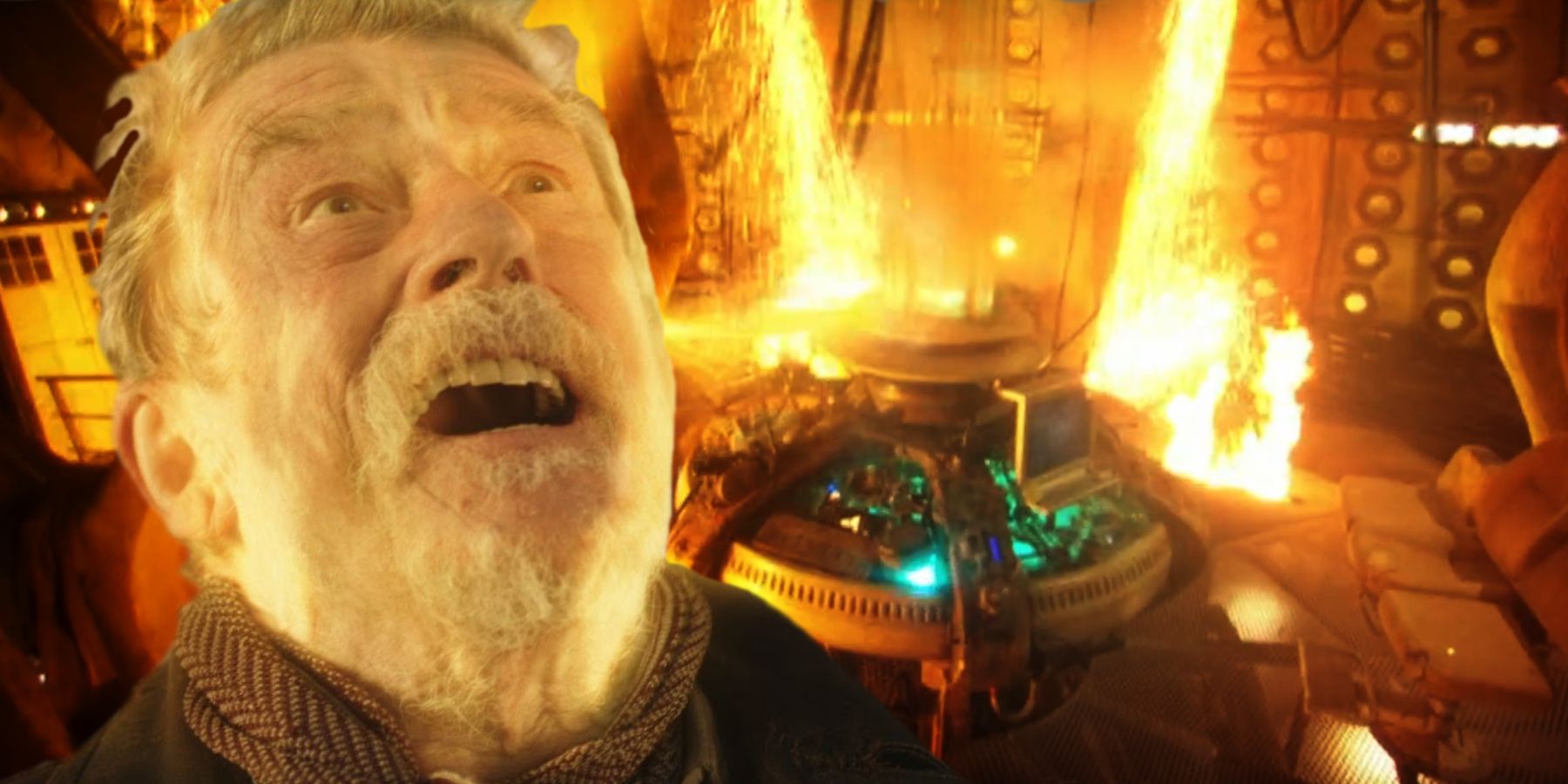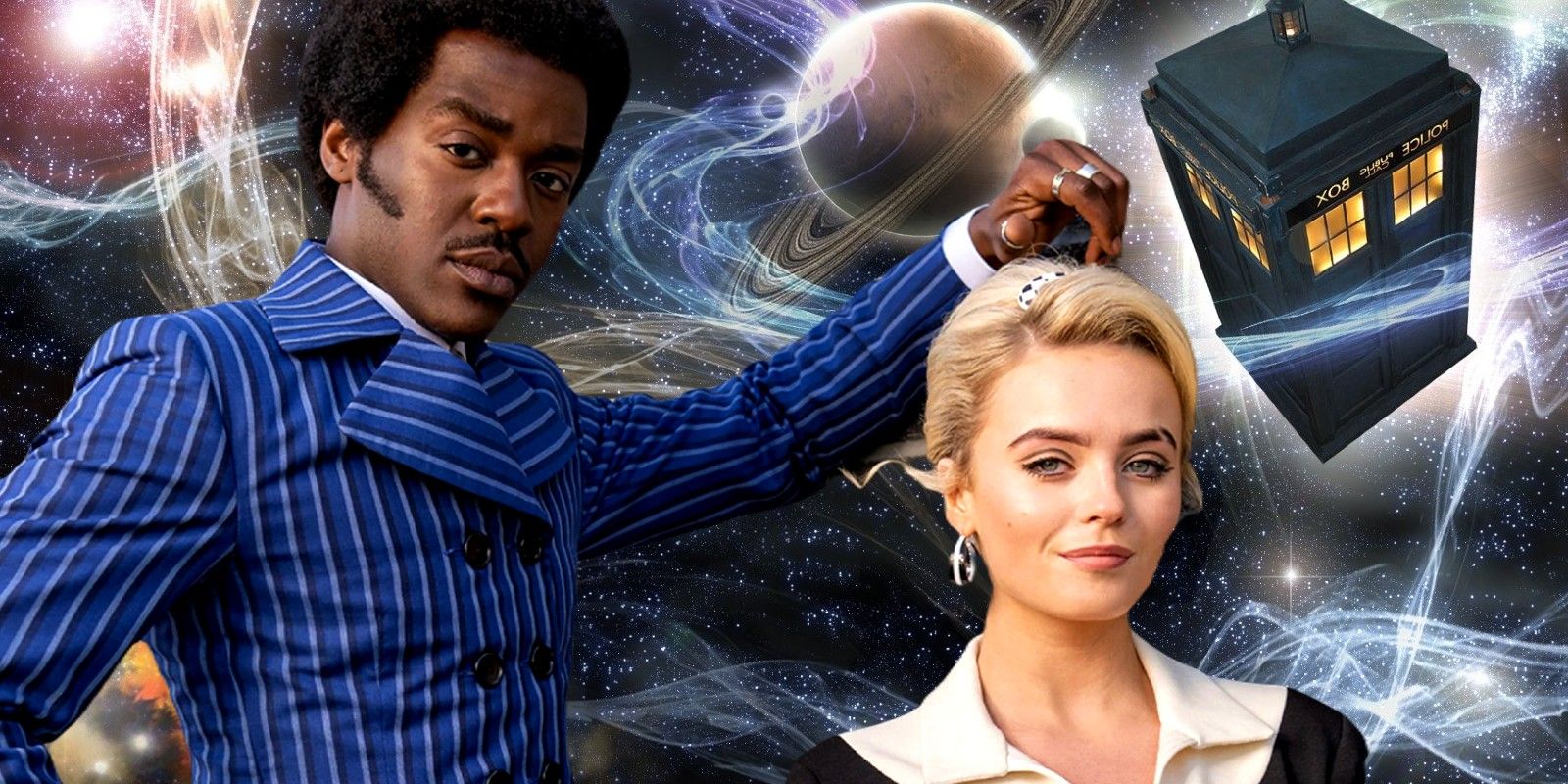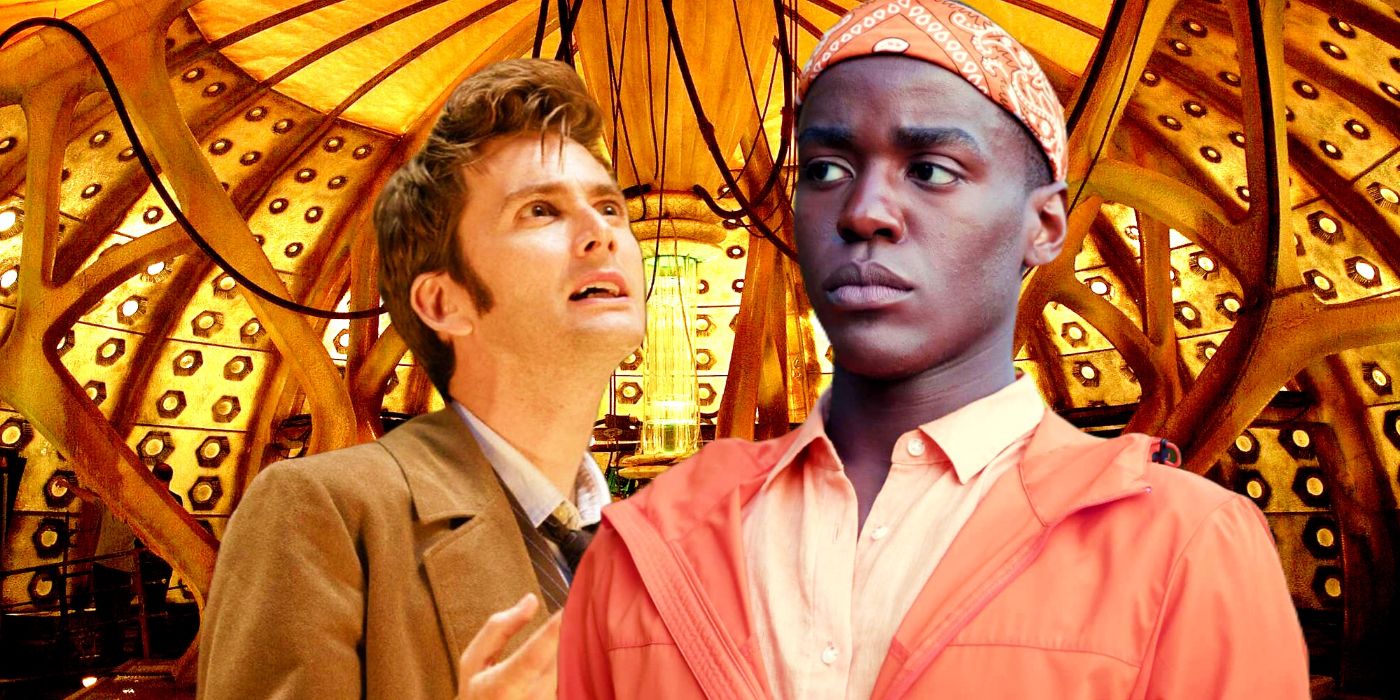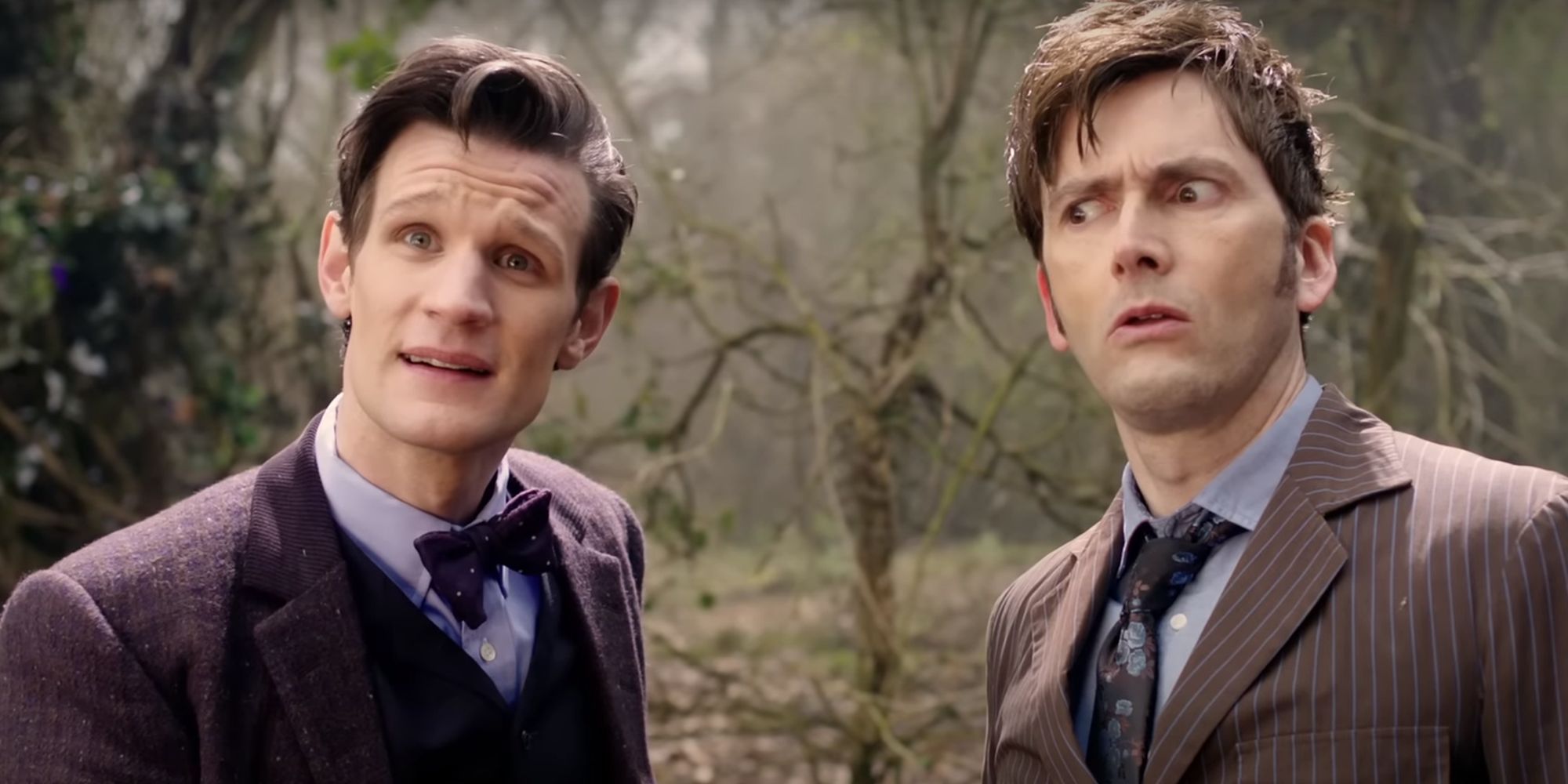
Controversial Davros Episode Creates Division Among Doctor Who Fans

Doctor Who's BBC Children in Need mini-episode sparks fervent debate among fans over its reinterpretation of iconic nemesis Davros, exposing the show's progressive casting choices
The BBC Children in Need mini-episode of Doctor Who, titled 'Destination: Skaro', has sparked debates among fans regarding its revised depiction of the villain Davros.
In this brief five-minute scene, the Fourteenth Doctor, played by David Tennant, unexpectedly finds himself on Skaro, the homeworld of the Daleks. It doesn't take long for the Doctor to realize that he has travelled back in time, inadvertently becoming involved in the creation of the Daleks.
'Destination: Skaro' features entertaining interactions between Davros (played by Julian Bleach), the scientist responsible for creating the Daleks, and his assistant Mr. Castavillian (played by Mawaan Rizwan). In this episode, Davros is shown before his disfigurement and loss of mobility which later becomes his iconic appearance.
In a behind-the-scenes featurette, Doctor Who showrunner Russell T Davies addressed the updated look for Davros and expressed his dislike for linking disability with evil. Davies also hinted that future appearances of Davros will follow this new design, which has received mixed reactions from some fans.
Doctor Who mini-episode divides fanbase amid Davros controversy
The remarks made by Davies on November 17 ignited a fervent discussion on social media. Opinions among commentators were divided into two groups: those who believed that Davros' transformation was long-awaited, and those who deemed it unnecessary.
One wheelchair user wrote, "No one had a problem with Davros being disabled until Russell T Davies voiced his opinion." Another person commented, "I don't find #Davros offensive. He is a fantastic character. What is offensive is the assumption that all disabled individuals automatically relate to each other."
In contrast, the Davros scene in Children in Need received praise from other passionate Doctor Who fans. One poster shared their personal connection, stating, "This child is just like me when I was 5," accompanied by a childhood photo. They went on to describe their own experience with Perthes' disease, being registered as disabled, and frequently relying on a wheelchair. They acknowledged that some children were kind while others simply stared. The poster appreciated how Davies was considering this particular child and others like them, expressing gratitude as an adult.
Another post also expressed acceptance of the change, highlighting the impact it had on disabled fans and citing Russell's reasoning. They explained, "Knowing that disabled fans are speaking positively about the change and Russell's intentions means a great deal to me. Once the new Davros appears and remains just as cruel and genocidal as always, my nerdy mind will fully embrace it."
Doctor Who showrunner addresses the show’s “progressive” casting
Following recent remarks by Davies regarding Doctor Who's dedication to "progressive" casting, the controversy surrounding Davros emerges. The Welsh writer has specifically delved into the rationale behind the selection of trans actor Yasmin Finney for the role of Rose Noble in the highly anticipated Doctor Who 60th anniversary specials.
Davies emphasized that the desire to be progressive and represent society more accurately is not limited to Doctor Who. He and many other writers are passionate about this goal. Regarding Yasmin's casting, he expressed that it was a perfect fit, and he considers it a privilege to work with her and showcase her talent on screen. Don't forget to stay updated with the latest Doctor Who content by visiting Dexerto's comprehensive coverage.
Editor's P/S
As a long-time fan of Doctor Who, I have mixed feelings about the recent controversy surrounding the reinterpretation of the iconic nemesis Davros. On the one hand, I understand the desire to make the show more progressive and inclusive, and I appreciate the fact that Russell T Davies is taking steps to address the issue of disability representation. On the other hand, I am concerned that these changes may alter the character of Davros in a way that diminishes his impact and significance.
I think it is important to remember that Davros is a complex and nuanced villain, and his disability is an integral part of his character. His transformation from a compassionate scientist into a ruthless tyrant is a powerful metaphor for the dangers of unchecked power and ambition. By removing his disability, Davies risks undermining the character's complexity and making him less relatable to audiences.
Ultimately, I believe that the decision to change Davros' appearance is a creative one that should be left to the show's writers and producers. However, I hope that they will take into account the concerns of fans and ensure that the character remains true to his original vision.













